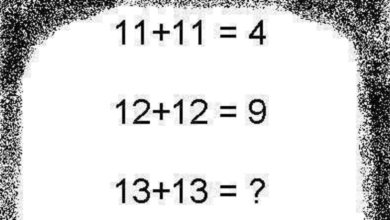Brahmastra: Ayan Mukerji’s film is an affront to the acting talents of Alia Bhatt

The film Sadak 2 (and Alia Bhatt’s performance in it) is something that everyone seems to have silently agreed to sweep under the rug. Two years and a well-earned stardom later, it remains the sorriest blot on a filmography that also includes Student of the Year and a film literally called Kalank. But while everybody acknowledged that she put herself in a compromised position on Sadak 2, considering that it was directed her father Mahesh Bhatt decades past his prime, there is no excuse for the manner in which Bhatt — often described as her generation’s most talented actor, someone who is incapable of delivering a bad performance even in Manyavar commercials — was treated in director Ayan Mukerji’s fantasy epic Brahmastra.
Released in theatres this past weekend eight solid years after it was first announced, Brahmastra is an excruciating theatrical experience that has the power to shatter both your eardrums and your will to live. It’s an overlong, incoherently plotted movie that routinely steals from all the obvious sources — Harry Potter, the MCU, Star Wars, even Avatar: The Last Airbender — and appears to have convinced itself that nobody will notice. In fact, director Ayan Mukerji has such little respect for the audience (and so little faith in his own film) that he feels the need to spoon-feed every last drop of exposition so loudly that the time you’re exiting the theatre, dazed silly, you will be thinking to yourself in Sanskrit.
And nobody screams louder than Bhatt’s Isha, who, when she isn’t calling for her boyfriend Shiva at the top of her lungs, is tearfully expressing her Parvati-like devotion to him, literally within 24 hours of their first meeting. In these 24 hours, Shiva (played Ranbir Kapoor), has creepily chased her around a party, manipulated her into giving him brownie points telling her that he cares for orphan kids, and subsequently abandoned her on a rooftop. The following day, he reveals the big ‘raaz’ of his life to Isha — that for as long as he can remember, he’s had worrying visions — and promises that he won’t ever keep a secret from her again.
Shiva immediately breaks this promise, when Isha catches him messing with fire on a trip to Varanasi. He tells her, way of explanation, that he has a ‘rishta’ with ‘aag’. And going the pained look on Isha’s face, he may as well have told her that he has a ‘rishta’ with another woman. To be fair, her anger is justified. She was expressly promised that there would be no more secrets between them, and then Shiva told her that he is immune to flames! But what happens next is even more stunning.
With little reason to still be involved with a (secretive, super-powered) man that she has just met, Isha tells Shiva that she knows he’s special, and that if fate has brought them together at this particular moment in time, then it must be her duty to do his bidding. I know that this movie was probably conceptualised before anybody involved had even heard of the word ‘woke’, but writing like this would be outdated even in the era that Brahmastra is drawing from.
Isha is later referred to as a ‘button’ — a literal inanimate object — that Shiva needs to perform the function of a catalyst in his journey. In the film’s ridiculous climactic action sequence, she accompanies him onto the battlefield with a lighter in her hand, prepared to flick it to life at a moment’s notice — he can’t do this himself, I guess? — and help Shiva ignite his powers.
Yet another mundane task is outsourced to Isha when she’s with Shiva at Guruji’s House for Gifted Youngsters in Himachal Pradesh, deep in the film’s second half. She is told to go back to Shiva’s chawl in Mumbai, secure the last remaining belongings of his dead mother, stuff them into an overnight bag and bring everything back to him. So, after around two hours of being forcefully inserted into life-altering drama that she never asked for, Isha is asked to give Shiva room to focus on his training, as if she’s the kind of draction that Ramya Krishnan’s character in Liger described as a ‘chudail’. In Mumbai, she’s attacked one of the villain’s three henchman, and even then — separated from Shiva — the movie refuses to allow Isha to save herself. Instead, it sends two of Guruji’s superpowered disciples to save her skin in a blatant act of Deus Ex Machina. Brahmastra often relies on plot conveniences such as this, instead of developing characters via story.
And for a film whose mission statement is a variation of that ‘love is the strongest superpower’ mumbo-jumbo from Harry Potter, Brahmastra sure treats Isha and Shiva’s romantic arc with all the care that Karan Johar gives to the less-popular guest on his talk show. In fact, Bhatt is treated better on the Koffee with Karan episodes that she isn’t even a part of than she is in Brahmastra, a film that appears to be constantly chanting ‘mantras’ under its breath to find ways of involving her in the story.
For Isha to have no agency in the film is one thing — Brahmastra fails the Bechdel Test with flying colours, of course — but did Bhatt have no say about her character in real life either? Or maybe she did, and the others simply didn’t len. It can be argued that Mukerji, as with the several other elements in the film, is playing Isha’s storyline close to the chest. We mustn’t, however, judge a character based on their hypothetical arc in non-exent future films, but on what we’ve been shown in this one.
And to think that Bhatt’s career is peaking as we speak. Isha is the kind of arm-candy character that you’d expect to see in some of the more offensive ‘hero-driven’ movies that Bollywood loves to make. But this is the sad realisation that Brahmastra leaves you with: Shiva might be the Chosen One, sure, but nothing about this film is unique; in fact, treating its female lead poorly is just one of the many traits that it shares with the worst kind of entertainment that the industry has to offer.
Post Credits Scene is a column in which we dissect new releases every week, with particular focus on context, craft, and characters. Because there’s always something to fixate about once the dust has settled.







